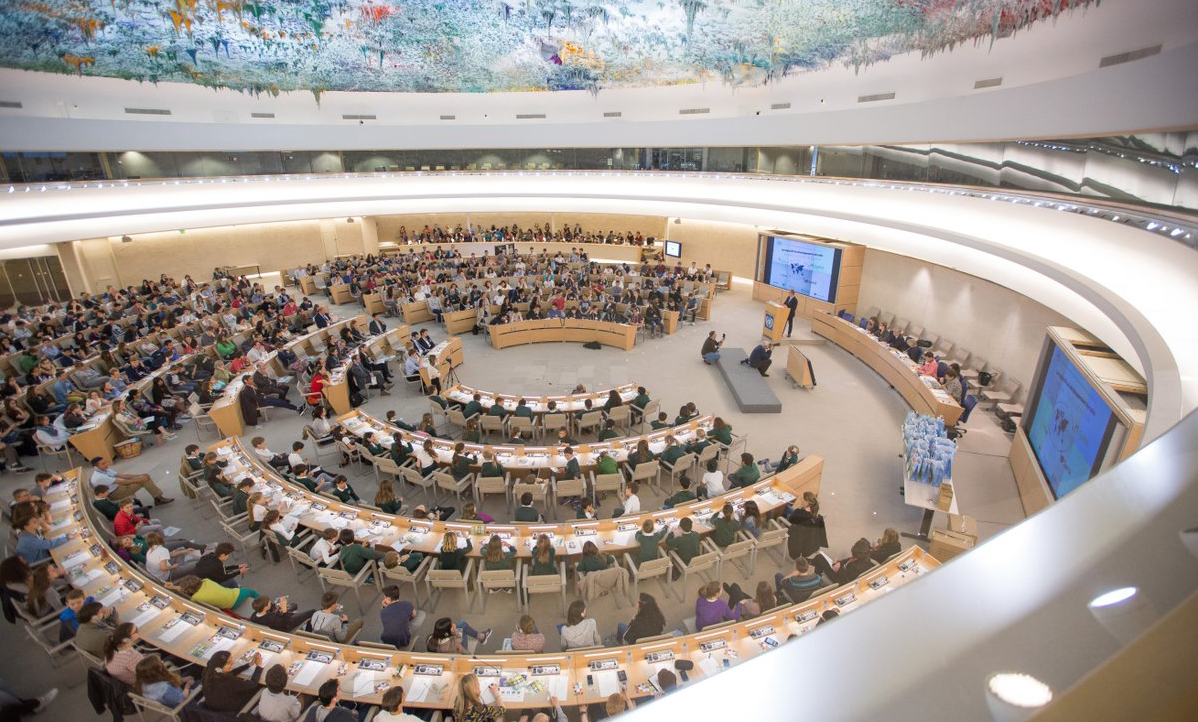


Photo/UN Human Rights Council
GENEVA, March 13 (Xinhua) -- Cuba on Friday delivered a joint statement on behalf of 64 countries at the ongoing 46th session of the United Nations Human Rights Council (UNHRC), calling on some forces to stop making unfounded allegations against China out of political motivations.
All sides should promote and protect human rights through constructive dialogue and cooperation, and firmly oppose politicization of human rights and double standards, said the joint statement.
It commended the people-centered philosophy that the Chinese government pursues and the achievements that China has made in its human rights cause.
"Xinjiang is an inseparable part of China. We urge the relevant sides to abide by the purposes and principles of the United Nations Charter, stop interfering in China's internal affairs by manipulating Xinjiang related issues, refrain from making unfounded allegations against China out of political motivations and curbing the development of developing countries under the pretext of human rights," the statement said.
On March 5, Belarus delivered a joint speech on behalf of 71 countries at the 46th UNHRC session, emphasizing that Hong Kong affairs are China's internal affairs and should not be interfered by external forces.
Also in recent days, a number of countries have expressed their firm support for China on Xinjiang-related and Hong Kong-related issues in their individual statements delivered at the session.

 Award-winning photos show poverty reduction achievements in NE China's Jilin province
Award-winning photos show poverty reduction achievements in NE China's Jilin province People dance to greet advent of New Year in Ameiqituo Town, Guizhou
People dance to greet advent of New Year in Ameiqituo Town, Guizhou Fire brigade in Shanghai holds group wedding
Fire brigade in Shanghai holds group wedding Tourists enjoy ice sculptures in Datan Town, north China
Tourists enjoy ice sculptures in Datan Town, north China Sunset scenery of Dayan Pagoda in Xi'an
Sunset scenery of Dayan Pagoda in Xi'an Tourists have fun at scenic spot in Nanlong Town, NW China
Tourists have fun at scenic spot in Nanlong Town, NW China Harbin attracts tourists by making best use of ice in winter
Harbin attracts tourists by making best use of ice in winter In pics: FIS Alpine Ski Women's World Cup Slalom
In pics: FIS Alpine Ski Women's World Cup Slalom Black-necked cranes rest at reservoir in Lhunzhub County, Lhasa
Black-necked cranes rest at reservoir in Lhunzhub County, Lhasa China's FAST telescope will be available to foreign scientists in April
China's FAST telescope will be available to foreign scientists in April